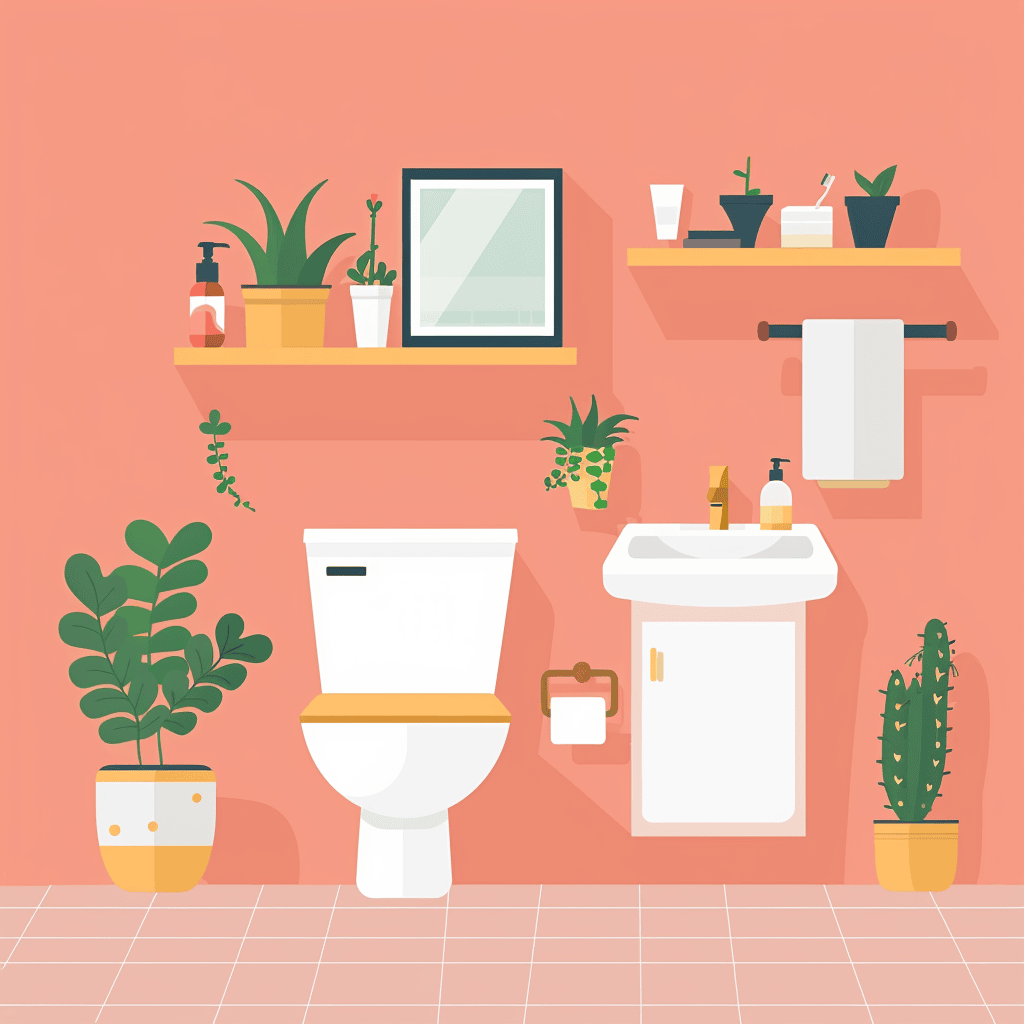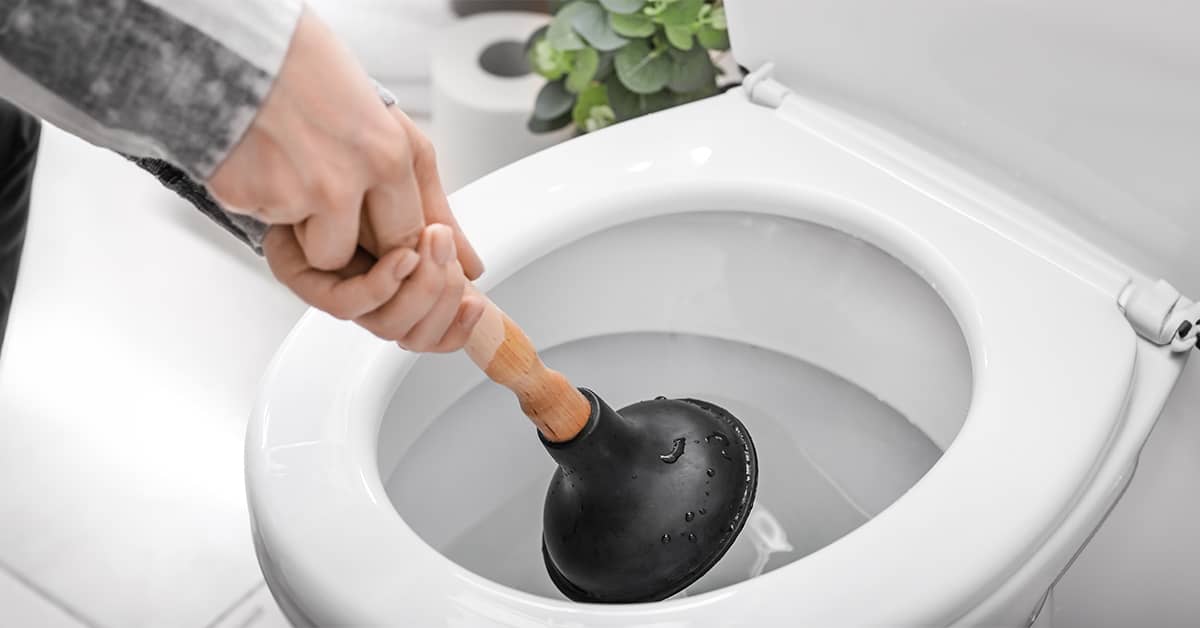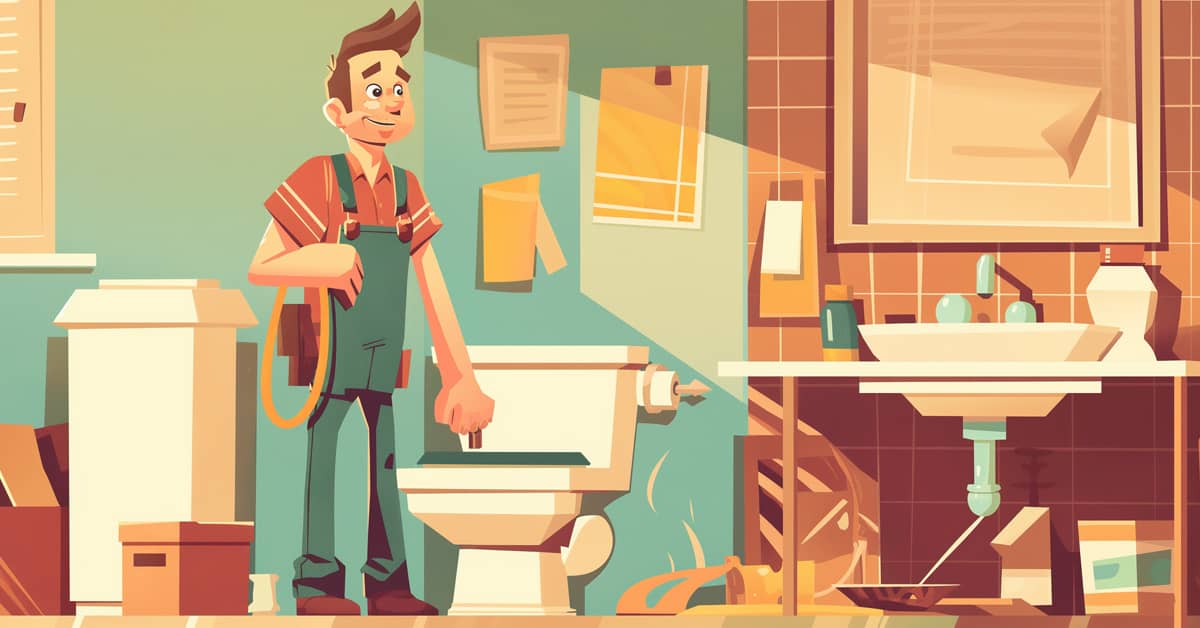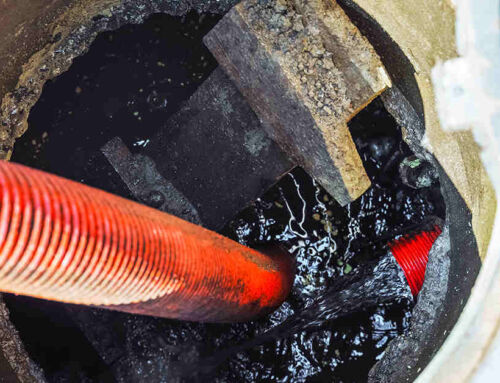Jump to…
Experience the Unblockers Difference
No call-out charges
Emergency response call-outs available
Available anytime 24/7
Expert, local engineers
Fixed price, no hidden charges

A blocked toilet is more than just an inconvenience; it’s a disruption to your daily life and can quickly become a sanitary issue. Understanding the severity of the blockage is crucial in deciding the right course of action, whether it’s a DIY fix or calling in a professional.
Key Points
Assessing the Severity of the Blockage
Minor Blockages
These are often indicated by slow draining after flushing and might be solved with a plunger or toilet auger. These tools can dislodge common blockages caused by excessive toilet paper or non-biodegradable materials.
Moderate Blockages
If you notice the water rises to a high level and drains slowly, or if plunging doesn’t clear the blockage, the issue may be more significant. In such cases, a specialised toilet unblocker chemical might be needed.
Severe Blockages
A toilet that is completely blocked, causing water to overflow or not drain at all, signifies a severe blockage. This could be due to an obstruction in the main drain line or a more complex issue. Such situations typically require professional intervention.
Not Sure How Severe the Blockage Is? Get a Free On-Site Quote
If you’re unsure about the extent of your toilet blockage or if your initial attempts to clear it have been unsuccessful, it’s time to call in the experts. Our team at Unblockers.net offers free on-site quotes to accurately assess your situation. We come equipped with the tools and expertise to diagnose and fix even the most challenging blockages, ensuring your toilet returns to normal function as quickly as possible.
Contact us today for a hassle-free assessment and efficient, professional service.
Blocked Toilet Causes
When it comes to toilet blockages, the reasons can be varied and often unexpected. From everyday items to less obvious culprits, understanding what causes these blockages is key to both prevention and effective resolution. In this section, we explore some of the most common causes of toilet blockages, providing insights that can help in avoiding future issues.
Excessive Toilet Paper
Overuse of Toilet Paper: One of the simplest yet most common causes of toilet blockages is the excessive use of toilet paper. Large amounts can create a mass that the toilet’s flush can’t dissolve or push through the plumbing, leading to immediate blockages.
Build-ups of Limescale
Limescale Accumulation: In areas with hard water, limescale can build up in pipes over time. This buildup narrows the pipes, restricting flow and making blockages more likely, especially when combined with other waste materials.
Wet Wipes and Flushable Wipes
Non-Biodegradable Wipes: Despite often being marketed as flushable, wet wipes and flushable wipes do not disintegrate like toilet paper. They can easily cause blockages by creating a net-like structure that traps other waste.
Deodorant Blocks
Toilet Freshener Blockages: Deodorant blocks used in toilets, especially those not contained in a cage, can accidentally fall into the bowl and get flushed, leading to blockages due to their size and non-dissolvable nature.
Waste
Specific Types of Waste: Certain types of waste, like sanitary products, cotton swabs, and dental floss, are not designed to be flushed. These items don’t break down in water and can quickly lead to clogs.
Children’s Toys
Small Items from Children: It’s not uncommon for children to accidentally or curiously flush small toys or objects down the toilet. These items can get stuck in the pipes and cause significant blockages.
Pipe Issues
Problems in the Plumbing: Issues with the pipes themselves, such as bends, narrow sections, or damage, can contribute to blockages. These structural problems can trap waste and exacerbate clogs.
Hair
Hair Clogs: While more common in shower drains, hair can also contribute to toilet blockages, especially when combined with other materials like grease or wet wipes, forming dense masses.
Grease and Fat
Grease in the Toilet: Although more typically a problem for kitchen sinks, grease and fat can also cause blockages in toilets if flushed. They solidify in pipes and trap other waste materials.

Methods of unblocking toilets
Dealing with a blocked toilet can be a daunting task, but there are several methods you can use to tackle this common household issue. From simple DIY techniques to more advanced approaches, understanding how to effectively unblock a toilet is crucial for maintaining a functional and hygienic bathroom. In this section, we’ll explore a variety of methods suited for different types of blockages. Whether it’s a minor clog that can be cleared with household items or a more stubborn blockage requiring specialised tools, we’ll guide you through the steps to unblock your toilet and restore its proper function.
DIY Methods
Drain Snake (Auger)
Navigating Deeper Blockages: A toilet auger, or a drain snake, is a specialised tool designed to navigate through the curves of a toilet and dislodge deeper blockages. By feeding the auger down the toilet and cranking its handle, you can break up or retrieve obstructions such as excessive toilet paper or trapped objects.
Baking Soda and Vinegar
Natural Chemical Reaction: A mixture of baking soda and vinegar can create a fizzy chemical reaction that helps to break down minor blockages. Pour a cup of baking soda followed by a cup of vinegar into the toilet, let it sit for several minutes, and then flush. This method is safe and eco-friendly.
Boiling Water
Heat to Dissolve Clogs: Pouring boiling water down the toilet can sometimes dissolve blockages, especially those caused by greasy substances. However, it should be used with caution to avoid cracking the ceramic bowl. Let the water cool slightly before pouring.
Cleaning the Pipe
Direct Removal of Blockage: In some cases, the best approach is to remove the toilet to access and clean out the blockage directly. This method is more labour-intensive and may require shutting off the water supply and draining the toilet before removal.
Salt and Baking Soda
Abrasive and Dissolving Action: A combination of salt and baking soda can be effective for breaking down organic clogs. Pour a mixture of half a cup of table salt and half a cup of baking soda into the toilet, wait for a few hours, and then flush to clear the mixture through the system.
Get Out the Plunger
Classic Unblocker: The plunger is the most common tool for unblocking toilets. Ensure a good seal around the plunger’s cup over the toilet’s drain hole, and use forceful thrusts to create pressure and dislodge the blockage. For best results, use a flange plunger designed for toilets.
Chemical Cleaners
Powerful Dissolving Agents: Chemical cleaners can be effective for breaking down tough clogs. These products should be used according to the manufacturer’s instructions and with caution, as they can be harmful to the plumbing system and the environment if overused.
Biological Cleaners
Eco-Friendly and Safe for Pipes: Biological cleaners use enzymes to break down organic matter in blockages. These are a safer and more environmentally friendly alternative to harsh chemicals and are particularly useful for regular maintenance to prevent clogs.
When faced with a stubbornly blocked toilet, sometimes DIY methods just don’t cut it. This is where professional services come into play, offering effective and often immediate solutions. From emergency response to specialised techniques, various professional options are available to address even the most challenging toilet blockages. Understanding the services available can help you make an informed decision on the best course of action to get your toilet functioning smoothly again.
Professional Drain Cleaning Services
Emergency Drain Unblocking Services
Immediate Assistance for Urgent Situations: Emergency drain unblocking services are crucial for severe toilet blockages that need immediate attention, especially if there’s a risk of overflow or water damage. These services offer rapid response, often available 24/7, to address and resolve urgent blockage issues promptly.
Local Drain Cleaners
Community-Focused Expertise: Local drain cleaners provide personalised and accessible services, often with a deep understanding of common issues in the area. They can be a great choice for less urgent blockages, offering reliability and a quick response time due to their proximity.
Professional Plumbers for Clogged Drains
Comprehensive Plumbing Solutions: Professional plumbers are equipped to handle a wide range of plumbing issues, including severely clogged toilets. They have the expertise and tools to not only remove the blockage but also diagnose and fix underlying problems in your plumbing system.
Drain Cleaning Companies
Specialised in Blockage Removal: Drain cleaning companies focus specifically on clearing blockages in various types of plumbing systems. They are equipped with advanced tools and techniques, such as motorised augers, to efficiently resolve even the most stubborn clogs.
High-Pressure Water Jetting Services
Effective and Thorough Cleaning Method: High-pressure water jetting is an efficient method for clearing blockages and cleaning pipes. It involves using high-velocity water streams to blast away the blockage and any buildup on the pipe walls, providing a deep clean that helps prevent future clogs.

Preventing Future Drain Blockages
Preventing future drain blockages is as important as knowing how to unblock them. Regular maintenance and smart usage can significantly reduce the risk of clogs, saving you both time and the inconvenience of dealing with a blocked system. In this section, we’ll share essential tips and practices that can help you keep your drains clear and fully functional, covering everything from general maintenance to specific care for kitchen and bathroom drains.
Drain Maintenance Tips
Regular Cleaning and Inspection: Regular drain maintenance is key to preventing blockages. This includes periodic cleaning of drain stoppers, using hair catchers in showers, and occasionally flushing drains with hot water or a mild, eco-friendly cleaner to prevent buildup.
Avoiding Clogged Drains
Mindful Usage and Disposal: A crucial step in avoiding drain clogs is being mindful of what goes down your drains. Avoid flushing anything other than human waste and toilet paper in toilets. In sinks, be careful with food remnants, coffee grounds, and grease, and consider using drain strainers to catch debris.
Kitchen Drain Care
Handling Kitchen Waste Properly: Kitchen drains are particularly susceptible to clogs due to food waste and grease. To prevent blockages, avoid pouring grease and oil down the sink, dispose of food scraps in the trash or compost, and regularly clean your garbage disposal unit if you have one.
Bathroom Drain Protection
Targeting Common Bathroom Clogs: Hair and soap scum are the main culprits for bathroom drain blockages. Use drain guards to catch hair in showers and bathtubs, regularly clean these guards, and avoid using excessive amounts of bath oils and similar products that can contribute to scum buildup.
Legal and Environmental Considerations
Navigating the legal and environmental aspects of drain cleaning and maintenance is crucial for responsible homeownership. Adherence to regulations and guidelines ensures not only compliance with the law but also the protection of the environment. Understanding these considerations can help you make informed decisions that align with legal requirements and environmental best practices. This section delves into the rules and recommendations surrounding drain cleaning, from regulatory compliance to eco-friendly approaches.
Regulations for Drain Cleaning
Adhering to Legal Standards: There are specific regulations and codes that govern drain cleaning and plumbing work. These rules vary by region and are designed to ensure safety and effectiveness. It’s important to familiarise yourself with these regulations or work with professionals who are knowledgeable and compliant.
Eco-friendly Drain Maintenance
Sustainable and Safe Practices: Eco-friendly drain maintenance involves using methods and products that are safe for the environment. This includes avoiding harsh chemicals, opting for biodegradable cleaners, and employing techniques that minimise ecological impact while maintaining drain efficiency.
Legal Disposal of Drain Waste
Proper Waste Management: The disposal of waste extracted from drains, such as grease or debris, must adhere to legal guidelines. Improper disposal can lead to environmental harm and legal repercussions. It’s essential to follow local regulations for waste disposal to ensure environmental safety.
Environmental Impact of Drain Cleaners
Evaluating Product Effects: The use of chemical drain cleaners has a significant environmental impact. These products can contain harmful substances that may contaminate water sources and affect aquatic life. Opting for environmentally friendly alternatives can reduce this impact and offer a safer option for your plumbing system.
Community Guidelines for Drainage
Local Best Practices: Many communities have specific guidelines or best practices for drainage to prevent systemic issues like sewer overflows or water contamination. Adhering to these guidelines not only helps in maintaining a functional community drainage system but also contributes to environmental conservation.
Summary
In summary, this article provided a thorough guide on diagnosing, addressing, and preventing toilet blockages. We explored the severity of blockages from minor to severe and introduced common causes, such as excessive toilet paper use and non-biodegradable items. Various DIY methods, including the use of plungers, baking soda and vinegar, and drain snakes, were detailed for tackling these issues at home.
For more stubborn blockages, the article emphasised the importance of professional drain cleaning services. Preventative measures to avoid future clogs and the legal and environmental considerations surrounding drain maintenance were also discussed. This guide aims to equip readers with the knowledge and tools necessary to maintain a functional and hygienic bathroom environment, ensuring that your toilet remains clear and fully operational.
Related Articles
READY TO MAKE YOUR ENQUIRY?
Get a quote for a drainage callout
Get a quote for a drainage callout
We have drainage engineers in your area now offering availability today.
Just leave a few details and our friendly drainage service team will call you right back.
We have drainage engineers in your area now offering availability today.
Just leave a few details and our friendly drainage service team will call you right back.
"*" indicates required fields

Need to speak to us right away? We have local engineers available now. Call 0808 303 0050
“Outstanding Service & Fast Repair”




